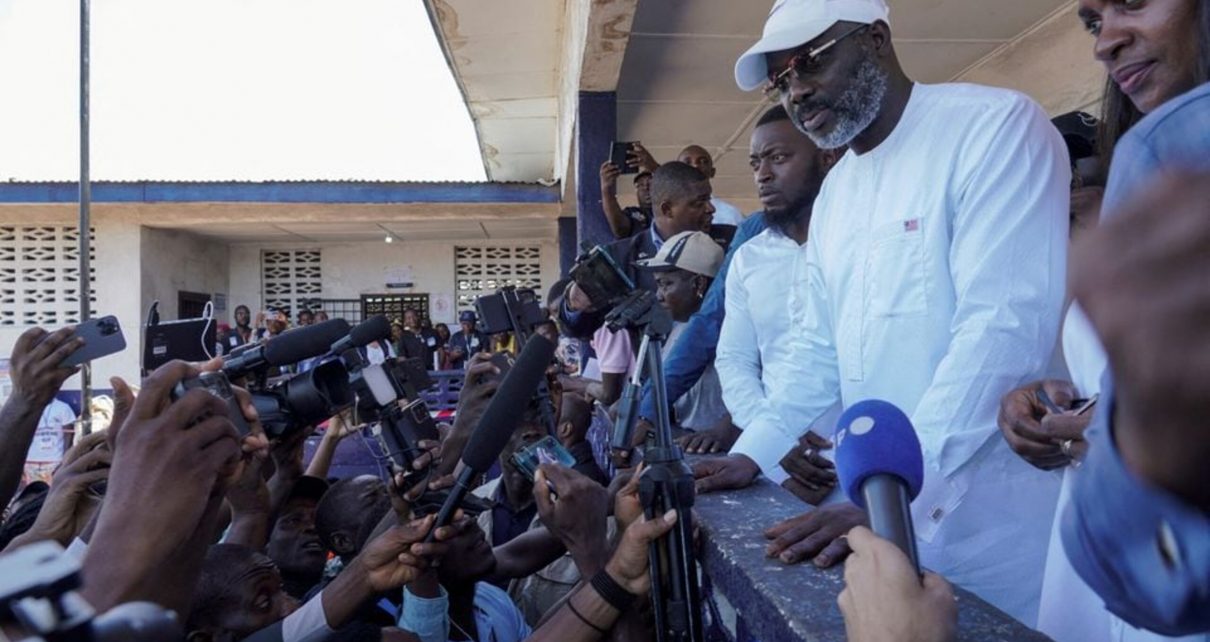Following a closely contested election, Liberia’s President George Weah gracefully conceded defeat to opposition leader Joseph Boakai. Weah’s acknowledgement of defeat marks the end of a presidency shadowed by corruption allegations, ensuring a seamless transition of power in the once-turbulent African nation.
Boakai, a 78-year-old former vice president who previously lost to Weah in the 2017 election, secured a lead with 50.9% of the vote, while Weah garnered 49.1%, as confirmed by the country’s elections commission after nearly all votes were tallied.
“The people have spoken, and I have spoken with President-elect Joseph Boakai to extend my congratulations on his victory,” Weah announced on national radio. “I urge all citizens to embrace the election results, following the path I have taken.”
Weah’s concession signals Liberia’s second peaceful transfer of power in over seven decades, a significant milestone considering the nation’s tumultuous history. His action contrasts sharply with the political landscape in West and Central Africa, plagued by military coups and electoral disputes undermining trust in democracy.
The outcome marks a notable reversal from 2017, when Weah, a global soccer icon, clinched victory with 62% of the vote, riding on waves of optimism. However, disillusionment grew among the populace due to persistent issues of poverty, unemployment, food scarcity, and inadequate electricity supply.
In Monrovia, the capital city, Boakai’s supporters celebrated jubilantly upon the near-final results’ announcement, expressing anticipation for the future. “We have a significant task ahead, and I’m thrilled by the citizens’ endorsement,” remarked Boakai to Reuters. “Our primary focus is to promote peace and foster reconciliation.”
Boakai, known for his understated demeanour in politics, emerged in a tight race with Weah during the initial round of voting in October. Failing to secure an outright victory, the runoff election on Tuesday sealed his path to the presidency.
Liberia continues to grapple with the aftermath of two devastating civil wars and the repercussions of the 2013–16 Ebola epidemic. Criticisms against Weah centred on unfulfilled promises of poverty alleviation and infrastructure improvement, prompting hopes for change under Boakai’s leadership.
Arkoi Sarkor, 43, expressed optimism, citing her support for Boakai due to employment challenges during Weah’s tenure. “I have hope in Boakai; he’s principled. He will rectify past mistakes and bring necessary changes,” she said optimistically, echoing sentiments for positive transformations under the new leadership.


